Almost 800,000 knee replacements and 450,000 hip replacements are performed each year in the U.S. – and that doesn’t even count the surgeries done on shoulders, elbows, wrists, ankles, and the great toe. Our job at CORA is to get you moving before and right after surgery. Our team is here to help you get back to normal faster, reduce your pain, and limit or eliminate the need for opioids or other harsh pain killers.
Physical Therapy Before Surgery
Studies show that people who participate in prehab (PT before surgery) have improved function and better overall outcomes in a shorter time frame than those who do not participate in prehab. Prior to surgery, physical therapy and occupational therapy can be used to:
- Educate you on your condition, the surgery, and what you can expect
- Maximize your strength and range of motion (ROM)
- Teach you movement adaptations to maximize your independence and minimize discomfort
- Improve your walking patterns if you’re having a knee, hip or ankle or great toe procedure
- Train you in the use of adaptive devices such as canes, walkers, and reachers
Post-Surgery Rehabilitation
After surgery, CORA therapists will work closely with your surgeon to maximize your recovery and plan your treatment and post-operative goals. Treatment interventions may include:
- Modalities for pain management
- Wound and scar management
- Mobility and range of motion exercises
- Therapeutic exercise for progressive strengthening
- Balance and gait training
- Functional exercise for return to activities of daily living
- Endurance and cardiovascular exercises
- Education on home exercise program
A Little Background on the Surgery for Family Members
Total joint arthroplasty is a surgical procedure performed to remove all or parts of an arthritic or damaged joint. Over time, the cartilage that covers the end of a bone can wear down, potentially leading to loss of motion, pain, and decreased independence.
Signs and symptoms can vary depending on the body part how much damage is involved, but may include:
- Pain
- Loss of motion
- Loss of function
- Loss of balance/Instability
- Decreased tolerance or independence with daily activities
- Difficulty carrying/lifting
- Decreased tolerance to walking
Conservative management of arthritis and joint damage can potentially delay or prevent the need for surgery. This includes physical and/or occupational therapy, weight management, and pharmaceutical interventions. However, when joint replacements are the only option, CORA is here for our patients…before and after.


